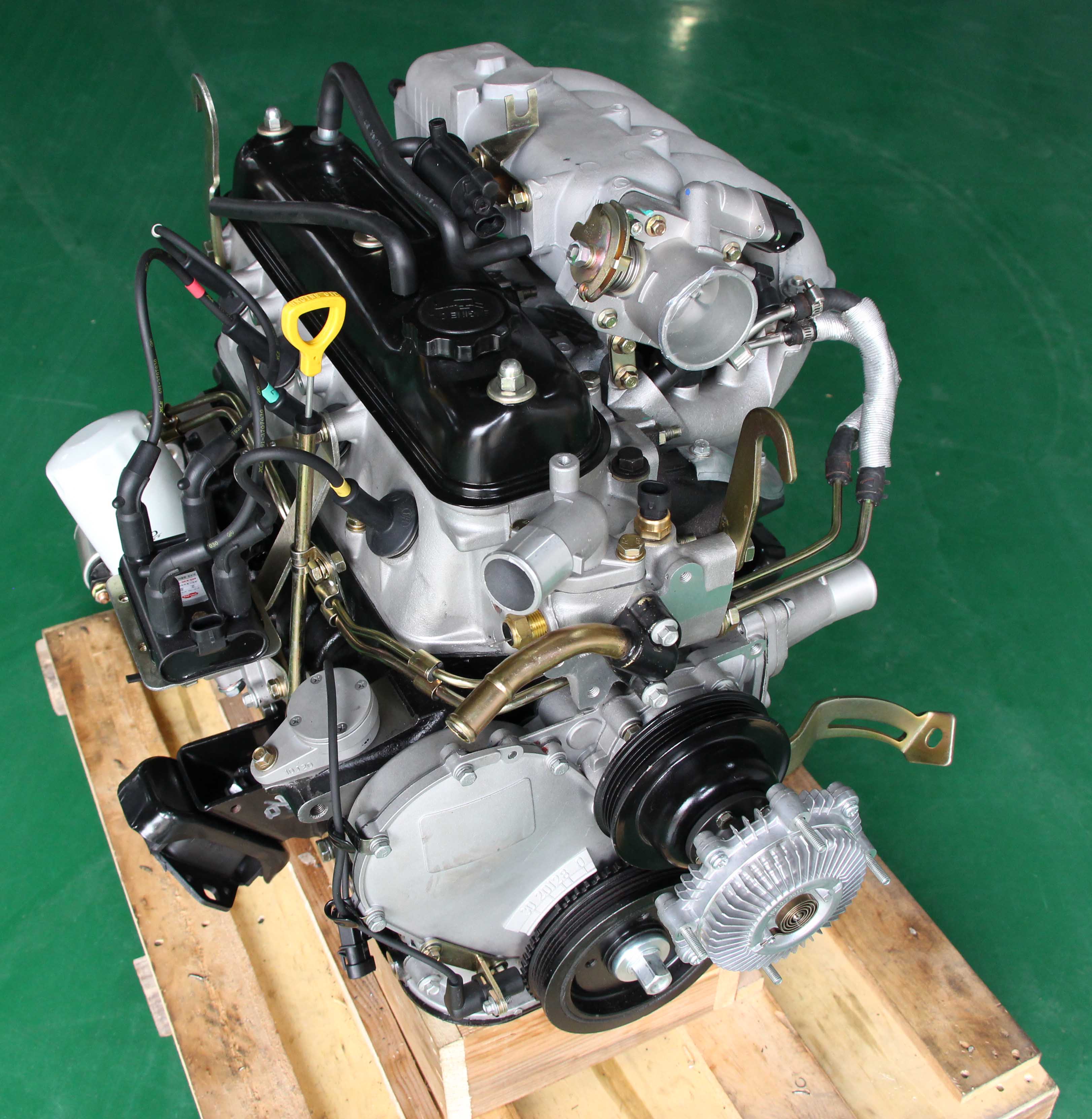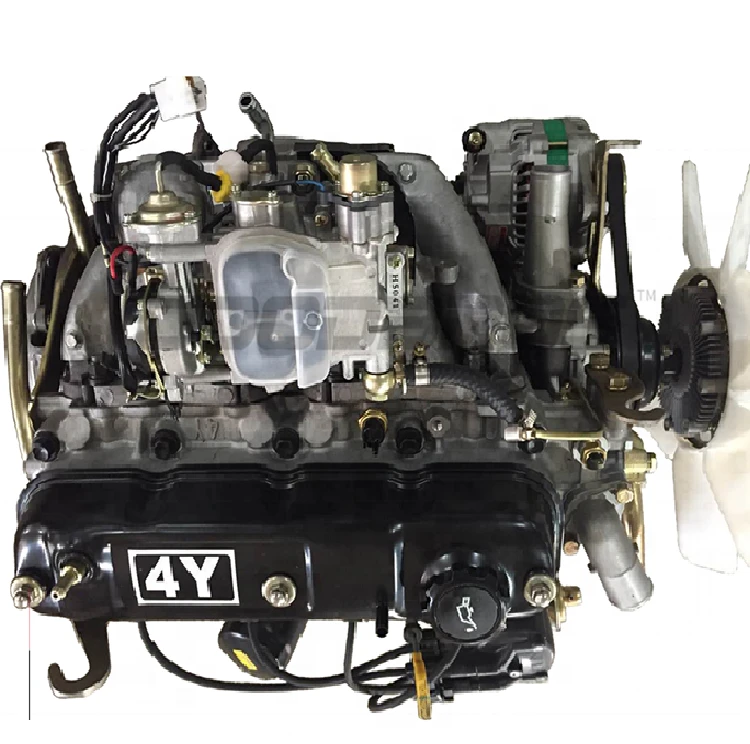How the 4Y Engine Powers Your Vehicle with Efficiency and Reliability
How the 4Y Engine Powers Your Vehicle with Efficiency and Reliability
Blog Article
Exploring the Numerous Types of Engine: Which One Fits Your Requirements?
Interior burning engines proceed to dominate due to their reliability, while electrical engines are acquiring traction for their sustainability. Hybrid engines offer a versatile concession, and diesel engines stand out for their power in demanding applications.

Inner Burning Engines
Interior combustion engines (ICEs) are the foundation of contemporary transportation, powering a huge selection of lorries from cars to aircrafts. These engines operate the principle of converting fuel into mechanical energy via a series of regulated explosions within a combustion chamber. One of the most typical sorts of ICEs include gas engines, diesel motor, and rotating engines, each developed to satisfy particular efficiency and efficiency demands.
Fuel engines normally utilize spark ignition, while diesel motor rely on compression ignition, causing distinctive distinctions in gas effectiveness and power result (4y engine). Rotating engines, or Wankel engines, offer a compact style and smooth operation, however are less typically made use of in mainstream applications
ICEs have actually undertaken substantial developments in innovation, consisting of the intro of turbocharging and fuel shot systems, which enhance general effectiveness and performance. Regardless of their effectiveness renovations, ICEs encounter boosting examination due to their ecological impact, specifically regarding greenhouse gas discharges.
Electric Engines
As problems concerning environmental sustainability and nonrenewable fuel source dependence expand, electrical engines have actually become an engaging alternative to inner combustion engines. These engines make use of electrical motors powered by batteries or fuel cells, supplying a cleaner and much more efficient motive powers.
Among the key advantages of electric engines is their reduced emissions. Unlike conventional engines that burn fossil gas, electric engines produce zero tailpipe emissions, substantially reducing air pollution and contributing to boosted public health and wellness. Furthermore, the effectiveness of electrical motors often goes beyond that of inner burning engines, transforming a greater percentage of energy from the source of power into useful energy for movement.
Electric engines are also noteworthy for their silent operation, making them suitable for city environments. 4y engine. The simpleness of their style results in fewer relocating components, which can result in reduced upkeep prices and enhanced integrity gradually
Nevertheless, difficulties remain, consisting of battery manufacturing influences, charging facilities, and array restrictions. In spite of these hurdles, the expanding investment in electric vehicle technology and eco-friendly power resources points towards an appealing future for electric engines, positioned to play an important duty in the transition towards lasting transport.
Hybrid Engines
Blending the benefits of both traditional and electric interior combustion engines, hybrid engines represent a versatile solution in the quest for efficient and sustainable transportation. These engines integrate a gasoline or diesel engine with an electric motor, permitting boosted gas efficiency and minimized emissions contrasted to traditional vehicles.
Hybrid engines run in several modes, making use of the electric motor for low-speed driving and the inner combustion engine for higher rates or when more power is required. This vibrant procedure not just boosts fuel economic situation but additionally adds to a check my blog smoother driving experience. Regenerative stopping is one more crucial attribute, capturing energy normally shed throughout stopping and redirecting it to recharge the battery.

As consumers significantly focus on eco-friendliness, hybrid engines attract attention as a functional selection, supplying a reliable balance of performance, effectiveness, and ecological responsibility. This adaptability makes them appropriate for city commuting and long-distance traveling alike.
Diesel Engines
Effectiveness and power are characteristics of diesel motor, which have long been preferred for their robustness and fuel economy. These engines operate the concept of compression ignition, where air is compressed to a heat before fuel is injected, igniting it without the demand for ignition system. This procedure allows diesel engines to achieve greater thermal performance compared to gasoline engines, equating right into far better fuel gas mileage and lower carbon dioxide exhausts.
Diesel engines are particularly fit for sturdy applications such as vehicles, buses, and industrial equipment, where torque and durability are extremely important. Their layout typically consists of more powerful parts to hold up against the higher stress produced during procedure, leading to longer solution life and decreased upkeep expenses.

Alternate Gas Engines
While diesel engines have lengthy controlled the landscape of durable source of power, different gas engines are gaining grip as sensible alternatives for a much more sustainable future. These engines utilize a selection of fuels, such as compressed all-natural gas (CNG), ethanol, hydrogen, and lp, intending to reduce greenhouse gas exhausts and reliance on nonrenewable fuel sources.
One substantial advantage of alternate fuel engines is their potential to lower carbon impacts. As an example, CNG engines release less toxins compared to standard diesel engines, making them ideal for city transportation systems and fleets seeking to boost air high quality. Ethanol, acquired from biomass, not only lowers discharges however additionally supports farming economic climates.
Hydrogen fuel cells represent an innovative advancement in this world, supplying zero-emission power through here are the findings a chemical reaction between hydrogen and oxygen. However, difficulties such as infrastructure advancement and manufacturing prices continue to be obstacles to prevalent fostering - 4y engine.
Verdict
In final thought, choosing the appropriate engine kind requires cautious factor to consider of specific demands and choices. Internal burning engines supply integrity, while electrical engines prioritize sustainability and minimized upkeep. Crossbreed engines combine the benefits of both, improving performance, whereas diesel engines supply premium power and torque for heavy-duty applications. Different fuel engines existing environmentally friendly choices, albeit with prospective facilities difficulties. Inevitably, a detailed evaluation of driving practices and ecological worths will certainly facilitate a notified decision pertaining to here are the findings engine selection.
Hybrid engines use a versatile concession, and diesel engines stand out for their power in demanding applications. The most typical kinds of ICEs consist of gasoline engines, diesel engines, and rotary engines, each developed to meet certain performance and effectiveness needs.
Unlike typical engines that melt fossil fuels, electric engines produce zero tailpipe exhausts, considerably decreasing air contamination and contributing to enhanced public wellness.Hybrid engines run in a number of settings, utilizing the electrical motor for low-speed driving and the inner burning engine for higher speeds or when even more power is required. Hybrid engines incorporate the advantages of both, improving performance, whereas diesel engines supply superior power and torque for sturdy applications.
Report this page